 W
WThe following is a timeline of the 2005 French riots that began Thursday, October 27, 2005. Where the source lists events as occurring in a night and following morning, this article lists them on the date of the night, not the following morning. The extent table in the main article does the opposite.
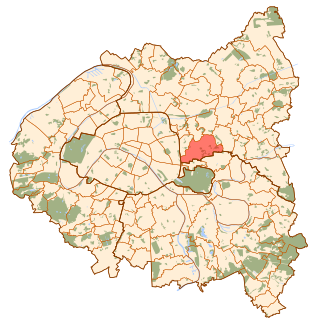 W
WA series of riots took place in July 2009 in France. On Bastille Day in the commune of Montreuil, an eastern suburb area of Paris, French youths set fire to 317 cars. Thirteen police officers were injured. On July 9, many youths started a protest in Firminy near Saint-Étienne, after the death of a young Algerian man, Mohamed Benmouna, in police custody. Benmouna's parents rejected the official account of suicide. Riots on Bastille day are a frequent occurrence in France as the disaffected protest high unemployment rates and failed integration policies for minorities. More than 240 people had been arrested near Paris.
 W
WThe 2010 pension reform strikes in France were a series of general strikes and demonstrations which occurred in France throughout September and October 2010.
 W
WOn October 23, 1983, two truck bombs struck buildings in Beirut, Lebanon, housing American and French service members of the Multinational Force in Lebanon (MNF), a military peacekeeping operation during the Lebanese Civil War. The attack killed 307 people: 241 U.S. and 58 French military personnel, six civilians, and two attackers.
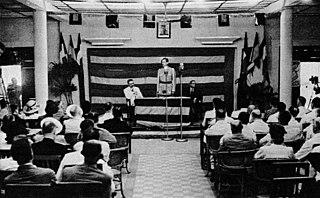 W
WThe Brazzaville Conference was a meeting of prominent Free French leaders held in January 1944 in Brazzaville, the then-capital of French Equatorial Africa, during World War II.
 W
WThe Camp de Rivesaltes, also known as Camp Maréchal Joffre, is a military camp in the commune of Rivesaltes nearby Perpignan in the department of Pyrénées-Orientales in the South of France. The camp was also used to detain civil populations several times between 1939 and 2007. Its darkest period was in 1942, when 2,251 Jews, including 110 children, were transferred from Rivesaltes via the Drancy internment camp to the Nazi extermination camp Auschwitz, where they were murdered.
 W
WThe Évian Accords comprise a treaty signed on 18 March 1962 in Évian-les-Bains, France, by France and the Provisional Government of the Algerian Republic, the government-in-exile of FLN, which sought Algeria's independence from France. The Accords ended the 1954–1962 Algerian War with a formal cease-fire proclaimed for 19 March and formalized the idea of a cooperative exchange between the two countries, as well as the full independence of Algeria from France.
 W
WFrench Algeria, also known as Colonial Algeria, was the colonial rule of France over Algeria. French rule in the region began in 1830 with the invasion of Algiers and lasted until the Algerian War of Independence concluded in 1962. While the administration of Algeria changed significantly over the 132 years of French rule, the Mediterranean coastal region of Algeria, housing the vast majority of its population, was administered as an integral part of France from 1848 until independence.
 W
WThe Fifth Republic, France's current republican system of government, was established by Charles de Gaulle under the Constitution of the Fifth Republic on 4 October 1958. The Fifth Republic emerged from the collapse of the Fourth Republic, replacing the former parliamentary republic with a semi-presidential system that split powers between a prime minister as head of government and a president as head of state. De Gaulle, who was the first French president elected under the Fifth Republic in December 1958, believed in a strong head of state, which he described as embodying l'esprit de la nation.
 W
WThe French Fourth Republic was the republican government of France between 1946 and 1958, governed by the fourth republican constitution. It was in many ways a revival of the Third Republic that was in place from 1870 during the Franco-Prussian War to 1940 during World War II, and suffered many of the same problems. France adopted the constitution of the Fourth Republic on 13 October 1946.
 W
WA strike began on 5 December to protest against broad changes to France's pension system proposed by President Emmanuel Macron. Reforming the pensions was one of President Macron's promises and there are three primary proposals of the pension reform plan. The first is to create a universal state retirement plan, which would replace the 42 individual retirement plans that exist in France. The second is a "points system", to give a pension in proportion to the contributions paid. The third is to "improve the pensions of the most disadvantaged." The result of the system would increase the retirement age of many jobs in France.
 W
WThe 2005 French riots, was a three-week period of riots in the suburbs of Paris and other French cities, in October and November 2005. These riots involved youth of predominantly African, North African, and Arab heritage in violent attacks, and the burning of cars and public buildings.
 W
WGurs internment camp [ɡyʁs] was an internment camp and prisoner of war camp constructed in 1939 in Gurs, a site in southwestern France, not far from Pau. The camp was originally set up by the French government after the fall of Catalonia at the end of the Spanish Civil War to control those who fled Spain out of fear of retaliation from Francisco Franco's regime. At the start of World War II, the French government interned 4,000 German Jews as "enemy aliens", along with French socialist political leaders and those who opposed the war with Germany.
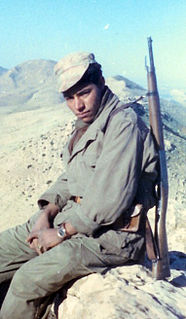 W
WHarki is the generic term for native Muslim Algerians who served as auxiliaries in the French Army during the Algerian War of Independence from 1954 to 1962. The word sometimes applies to all Algerian Muslims who supported French Algeria during the war. The motives for enlisting in the Harkis were mixed. They are regarded as traitors in Algeria and thousands died after the war in reprisals despite the Évian Accords ceasefire and amnesty stipulations.
 W
WThe Massacre of the Italians at Aigues-Mortes was a series of events on 16 and 17 August 1893, in Aigues-Mortes, France, which resulted in the deaths of immigrant Italian workers of the Compagnie des Salins du Midi, at the hands of French villagers and labourers. Estimates range from the official number of eight deaths up to 150, according to the Italian press of the time. Those killed were victims of lynchings, beatings with clubs, drowning and rifle shots, as well as many casualties.
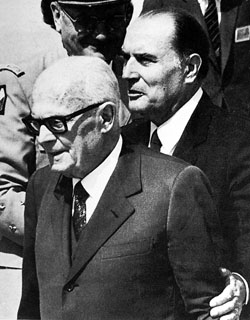 W
WThe Mitterrand doctrine was a policy established in 1985 by socialist French president François Mitterrand concerning Italian far-left terrorists who fled to France: those convicted for violent acts in Italy, but excluding "active, actual, bloody terrorism" during the "Years of Lead", would not be extradited to Italy. Mitterrand based this oral promise, which was upheld until the 2000s by France, on the alleged non-conformity of Italian legislation with European standards.
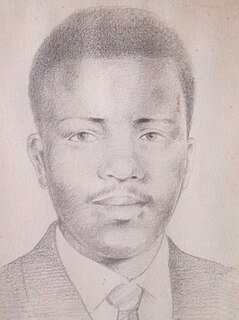 W
WFélix-Roland Moumié was an anti-colonialist Cameroonian leader, assassinated in Geneva on 3 November 1960 by an agent of the SDECE with thallium, following official independence from France earlier that year. Félix-Roland Moumié succeeded Ruben Um Nyobé, who was killed in September 1958, as leader of the Union des Populations du Cameroun.
 W
WThe 2007 strikes in France were a series of general strikes, mostly in the public sector, which started on 13 November 2007. The strike was over President Nicolas Sarkozy's and Prime Minister François Fillon's attempt to reduce early retirement benefits for 500,000 public employees. Sarkozy had stated that pension reform is the first in a series of measures designed to roll back protections for trade unions in France, and both unions and Sarkozy saw the pension strikes as a key political test.
 W
WThe Pieds-Noirs are the people of French and other European origin who were born in Algeria during the period of French rule from 1830 to 1962, the vast majority of whom departed for mainland France as soon as Algeria gained independence, or in the months following. Depending on context, the definition can also include the Algerian Jews, who had been granted French nationality by the Crémieux Decree.
 W
WThe 2005 French riots led to a domestic and international response.
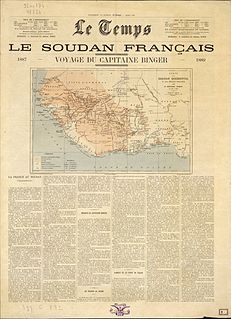 W
WLe Temps was one of Paris's most important daily newspapers from 25 April 1861 to 30 November 1942. It was a serious paper of record.
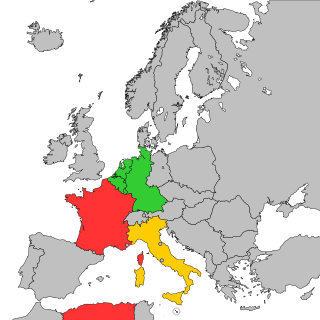 W
WThe Treaty establishing the European Defence Community, also known as the Treaty of Paris, is an unratified treaty signed on 27 May 1952 by the six 'inner' countries of European integration: the Benelux countries, France, Italy, and West Germany. The treaty would have created a European Defence Community (EDC) with a pan-European defence force. The treaty failed to obtain ratification in the French parliament and it was never ratified by Italy, so it consequently never entered into force. Instead, the London and Paris Conferences provided for West Germany's accession to NATO and the Western European Union.
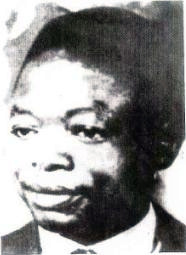 W
WRuben Um Nyobè was an anti-colonialist Cameroonian leader, slain by the French army on 13 September 1958, near his natal village of Boumnyebel, in the department of Nyong-et-Kellé in the maquis Bassa. He created on 10 April 1948 the Cameroon's People Union (UPC), which used armed struggle to obtain independence from French colonial rule. After his death, he was replaced by Félix-Roland Moumié, who was assassinated by an agent of the SDECE with thallium in Geneva in 1960. Until the 1990s, any mention of Ruben Um Nyobè was prohibited in Cameroon.